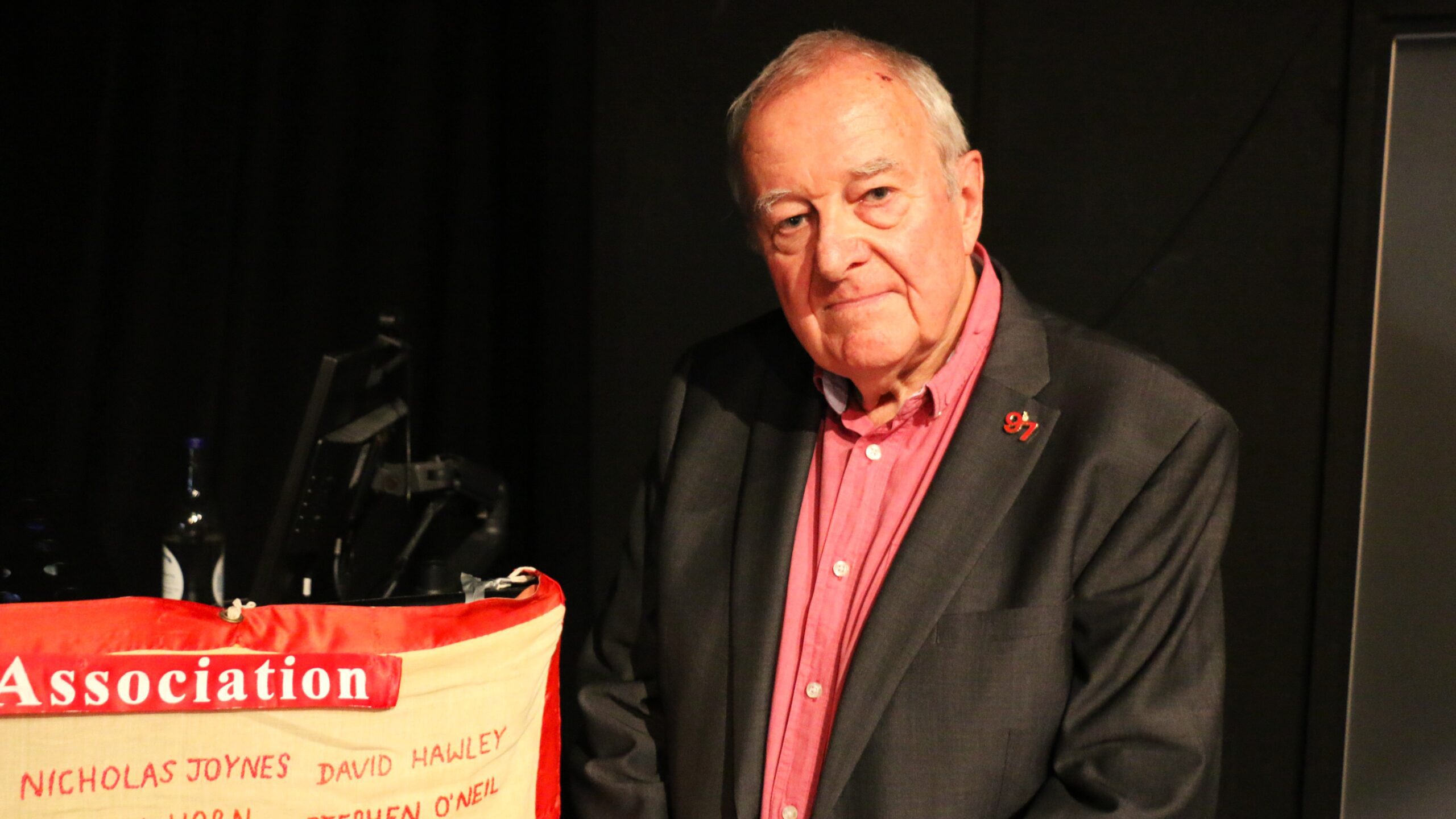And in an interview conducted on campus, he spoke of the legacy of the 1989 disaster when 97 football supporters were unlawfully killed.
Professor Scraton, who lectured at Edge Hill for 21 years and was awarded an Honorary Doctorate in Philosophy by the University in 2018, said: “Before I talk about the direct legacy, I would like to just pay real tribute to the bereaved and survivors.
“I can be a conduit, I can write, I can gain access, I can do stuff on TV and all the rest of it. But the hard yards have to be walked by families who are bereaved, who have been injured themselves, who are losing loved ones prematurely on the way.
“Something really positive is The Real Truth Legacy Project. That is to get into all schools the truth of Hillsborough.
“In the pilots we’ve been doing in schools, the responses from children, young children, junior school children have been remarkable. The questions they ask, the concern that they show.”
The Hillsborough Project, led by Professor Scraton at Edge Hill between 1990 and 2003, exposed that police and other official statements relating to the disaster had been altered or suppressed.
His book Hillsborough: The Truth further challenged the lies and misinformation around the events of April 15, 1989, when disaster struck at the FA Cup semi-final match between Liverpool and Nottingham Forest.
Professor Scraton led the Hillsborough Independent Panel, which played a key role in establishing the real truth of the disaster.
Andy Burnham, when Secretary of State for Culture, Media and Sport, said of the work: “It is impossible to overstate the importance of the work Professor Scraton did in the 1990-2003 period.
“Quite simply, the full horror and injustice of Hillsborough would never have been revealed were it not for his thoroughness and determination. Phil Scraton turned over stones that others walked past.”
Professor Scraton’s talks this week preceded two performances of the play 97+ at Edge Hill’s Arts Centre. The performance, written by Edge Hill’s drama graduate Tom Cain in collaboration with the Hillsborough Survivors Support Alliance, focuses on survivors of the disaster.
Some of the themes explored have recently been in the media spotlight with tragedy chanting about the Hillsborough disaster prevalent in Liverpool’s recent FA Cup match against Manchester United at Old Trafford.
Professor Scraton said of the issue: “I’m sad to say that I expect it now. I expect it in all forms of the work, all kinds of the work that I do. And I want to separate out the issue of ignorance and knowledge. Those who are ignorant are using it in the same way as they will chant obscenities about football teams.
“They don’t think of it any more than that because they’ve never lived through it, they’ve never understood it, they weren’t even born at the time.”
He also relayed his own experience as a young Liverpool fan of the 1958 Munich air disaster, in which 23 people including eight members of the Manchester United team and three club staff were killed.
He added: “The exchange that there has been between two clubs that have suffered so much from disasters is dreadful. But it’s not clubs. It’s a small group of people who will use any weaknesses as they see it to wind the others up.
“Now, I’m not in any way exonerating it or saying that that’s therefore understandable and we should pass over it. We shouldn’t. It has to stop. And it is stopping. And I think that’s the really important issue.”
Professor Scraton reiterated the importance of The Real Truth Legacy Project in educating children, adding that the aim is to begin with Hillsborough but also to teach about the Munich air disaster and other tragedies that have affected football.
Watch Professor Phil Scraton’s interview at Edge Hill University in full here.
To discover more about courses at Edge Hill, please visit ehu.ac.uk/study.
April 19, 2024



